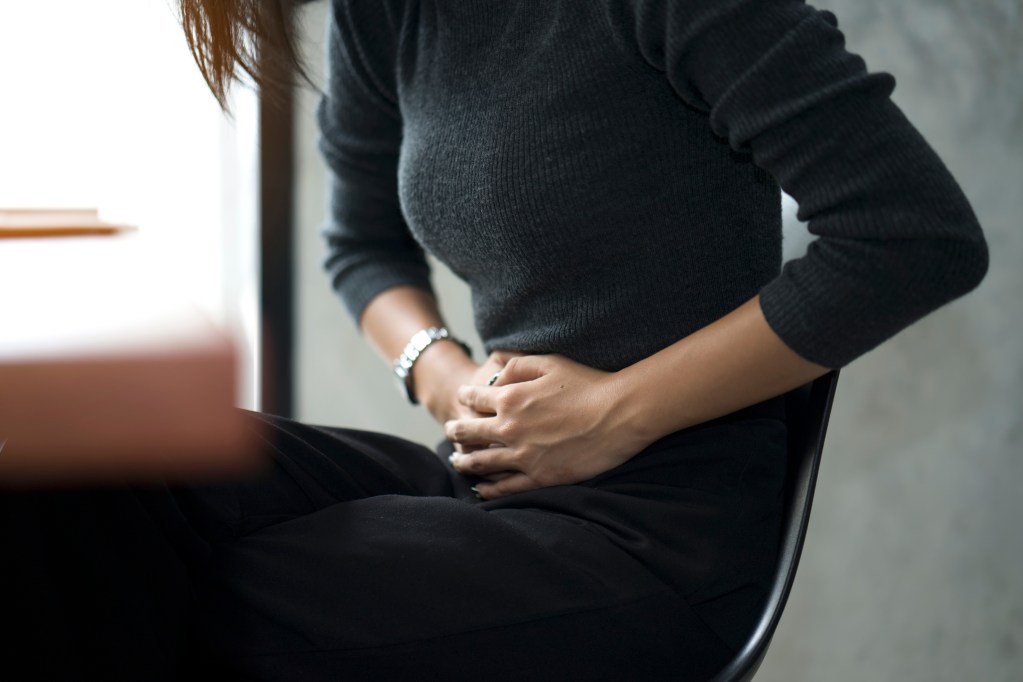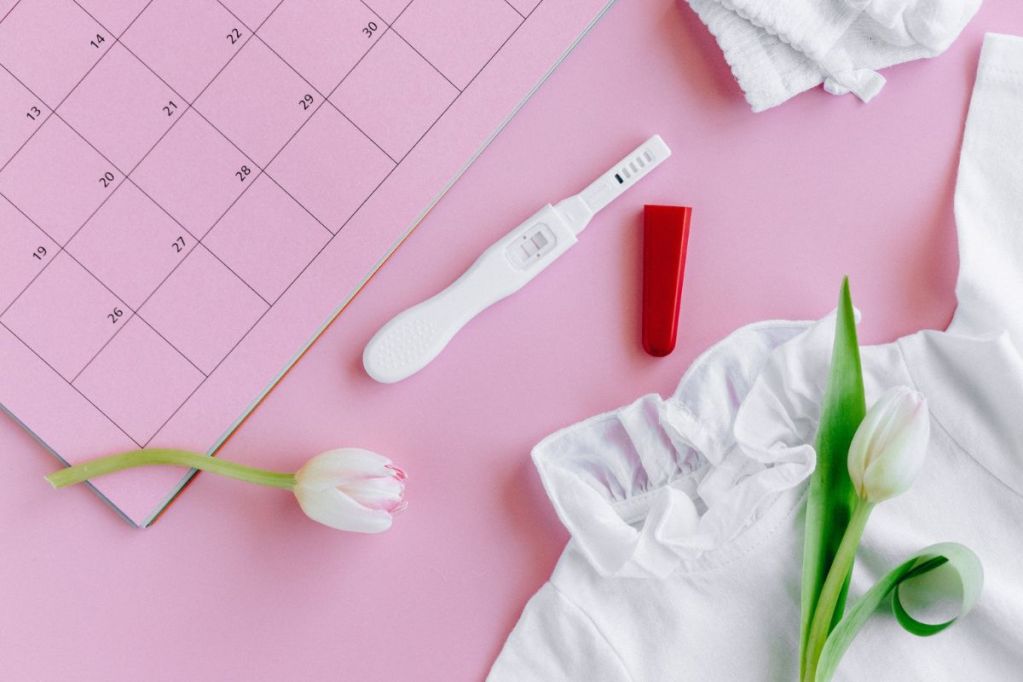In very early pregnancy — the first moment, in fact — the new embryo implants itself into the uterine lining. This can cause what is called implantation cramping — cramps caused by the implantation of the embryo into the uterus. Learn more about what implantation cramps feel like, how long they last, and how to tell them apart from period cramps.

What does implantation cramping feel like?
Implantation cramps are milder than period cramps but the sensation can be similar to period cramps. They could be a dull ache or small twinges. Often they can feel more like prickling, pulling, discomfort, or twinges; more than full-on mild period cramping. You may feel them in the abdominal area, pelvic area, or lower back. And the feeling could be in the middle of the body or just on one side of the body.
Any cramping can be painful, including implantation cramping, though implantation cramps are rarely painful. If you do experience pain, you can use a heating pad or acetaminophen. Implantation cramps should not be extremely painful, and if you are experiencing a great deal of pain, you should seek medical attention. It could be a sign of an ectopic pregnancy or another medical emergency.
Other signs of implantation and early pregnancy may accompany implantation cramps, like implantation bleeding, sore breasts, fatigue, mood swings, nausea, and headaches. You can have implantation cramps without other implantation symptoms and other implantation symptoms without implantation cramps. Implantation cramping typically lasts one to two days and can come and go during that time. They may last a few hours or up to three days.

When does implantation cramping happen?
Implantation cramping generally happens in the range of 3 to 10 days after ovulation, and a period usually begins 14 days after ovulation, so implantation cramping usually occurs a few days or a week before premenstrual or menstrual cramping would.
However, if period cramps begin for you before your period, there could be an overlap in the timing or you have a typical cycle that is less than 28 days or an irregular cycle. If this is the case, it could be difficult to tell which type of cramps you are having by the timing.
Implantation cramps don’t happen to most people who experience implantation — it is a symptom in about one-third of implantations. Not experiencing implantation cramping doesn’t mean you’re not experiencing implantation. Experiencing cramping or not doesn’t affect the likelihood of a healthy pregnancy.
It’s likely still too early to take an accurate pregnancy test when you’re experiencing implantation cramping because not enough hcG (the pregnancy hormone) has built up for the test to measure yet. After implantation occurs, the level of this hormone will double daily if the pregnancy progresses as normal.
Closing thoughts on implantation cramps
Implantation cramps are mild and often feel more like twinges than cramps — and often, you may not feel them at all. They’re an early sign of pregnancy and if you do feel them, the next step is to take a pregnancy test a week or two later if your period doesn’t come.
Editors' Recommendations
- Flying while pregnant? This is what you need to know
- 8 natural remedies for nausea to ease morning sickness during pregnancy
- Glass vs. plastic baby bottles: Here’s what doctors have to say
- What it means if you lose weight during pregnancy – and when to worry
- These foods that fight nausea during pregnancy are lifesavers




